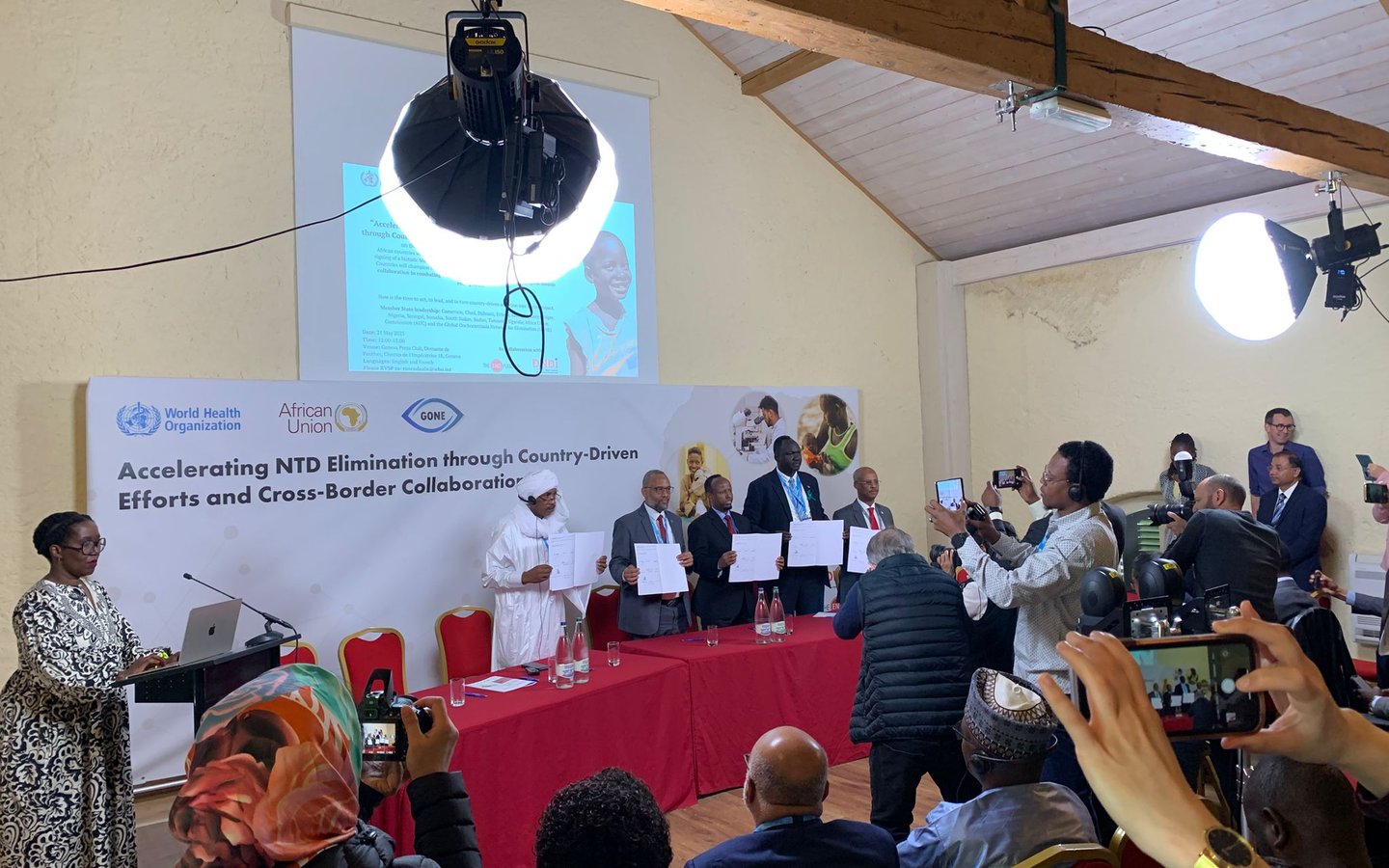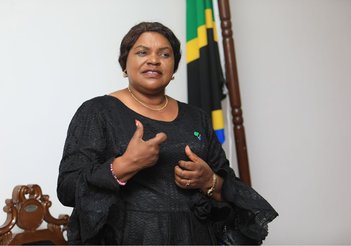A historic milestone
At the 78th World Health Assembly in Geneva, nine Eastern African countries signed a landmark Memorandum of Understanding (MoU) to eliminate visceral leishmaniasis (VL), also known as kala-azar, through coordinated cross-border efforts. The event marked a historic milestone in the fight against neglected tropical diseases (NTDs), as countries reaffirmed their commitment to regional collaboration and national leadership.
Organised by the African Union Commission (AUC) and the Global Onchocerciasis Network for Elimination (GONE), the meeting highlighted the importance of sustaining progress in NTD elimination through joint planning, data sharing, and integrated surveillance. These efforts are seen as critical to achieving the 2030 targets, particularly in the face of cross-border transmission and climate change.
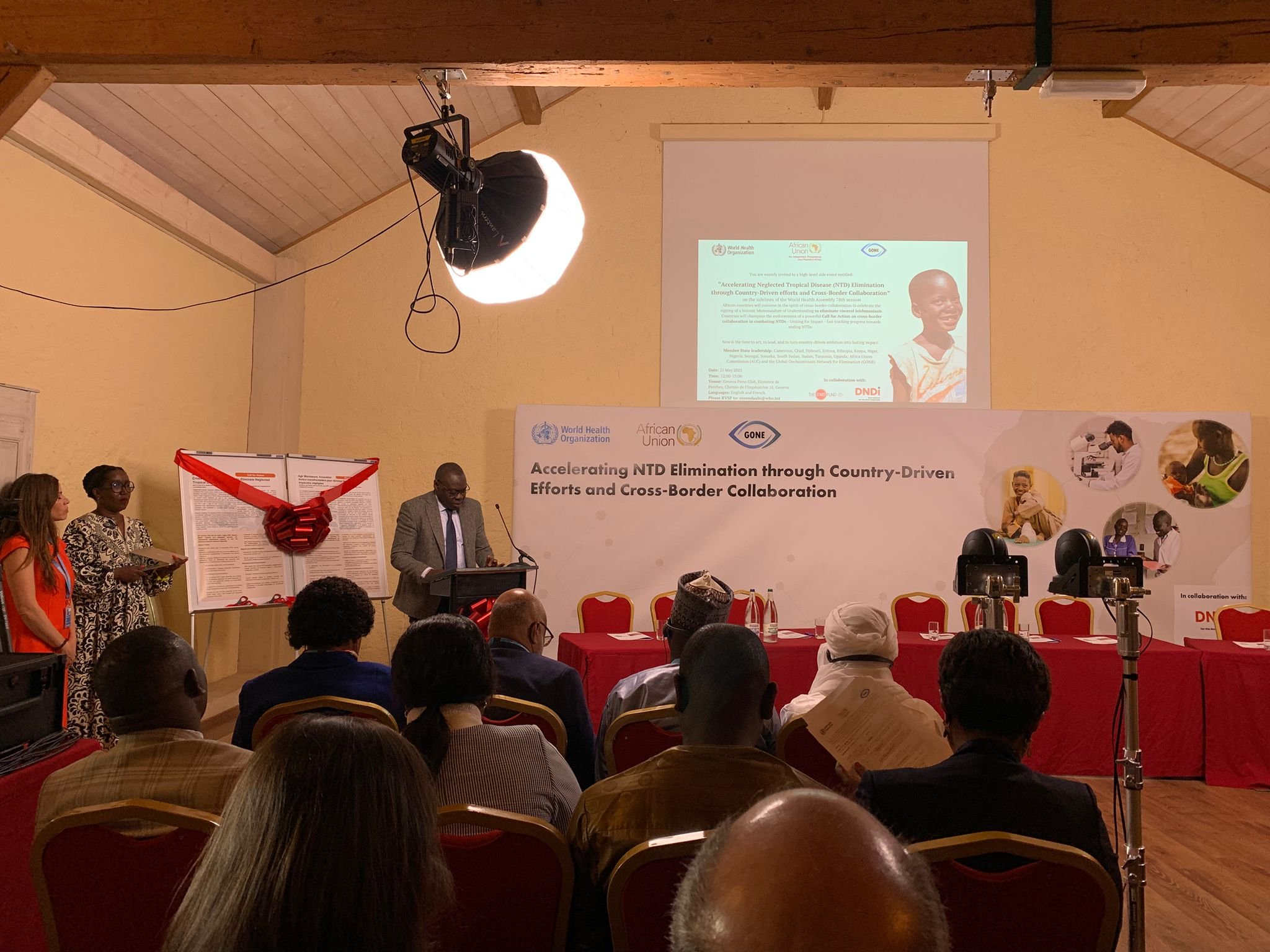
Dr Ibrahima Socé Fall, Director of WHO’s Global NTD Programme, opened the session by noting that VL remains a major public health challenge in Eastern Africa. Citing Bangladesh as the first country to eliminate VL as a public health problem, he emphasised that similar success is possible in Africa through strategic and united action.
“This is more than a health initiative. It is a movement for social justice.” “By working together in unity, we can continue making history toward a future free of kala-azar.”
The MoU was signed by Ministers of Health from Chad, Djibouti, Eritrea, Ethiopia, Kenya, Somalia, South Sudan, Sudan and Uganda. It formalises regional collaboration, drawing on lessons from past epidemics and the Southeast Asia model, to prevent future outbreaks through early diagnosis, treatment, and coordinated action.
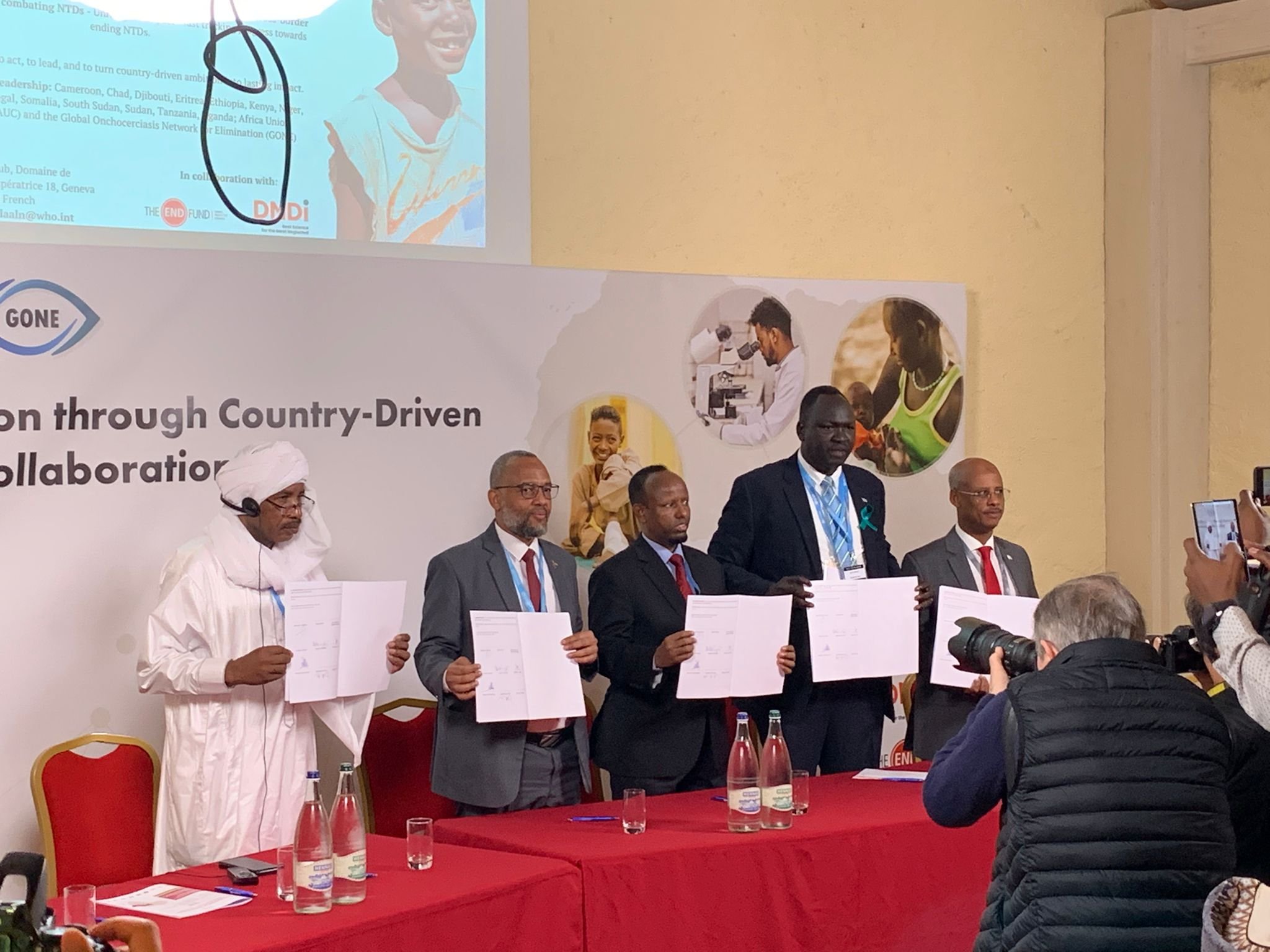
A representative from Africa CDC, speaking on behalf of H.E. Ambassador Amma Twum-Amoah AU Commissioner for Health, Humanitarian Affairs and Social Development, underscored the need for disease elimination to be a cross-border, integrated effort rooted in primary health care. The speaker called for sustained investment, innovation, and collective action to transform health systems across the continent.
During the panel on VL elimination, Sudan’s Minister of Health, Hon. Dr Haitham Mohamed Ibrahim Awadallah, described the devastating impact of conflict on VL services in Sudan, where only 21 of 84 treatment centres remain functional. He highlighted the need for international support and solidarity to sustain care and implement the MoU.
Dr Luis Pizarro, CEO of the Drugs for Neglected Diseases initiative (DNDi), emphasised the importance of political will, investment in research and development, and the role of African scientists. He noted that current VL treatments are outdated and painful, and that innovation is a necessity for resilient health systems.
In the second panel on cross-border collaboration, Prof. Julio Rakotonirina, Director for Health and Humanitarian Affairs at the AUC, reiterated the value of the WHO NTD Roadmap as a guiding tool. He stressed the need for strong regional partnerships to achieve elimination goals.
Hon. Jenista J. Mhagama, Minister of Health of the United Republic of Tanzania, reaffirmed Tanzania’s commitment to NTD elimination and called for joint planning, surveillance, and implementation with neighbouring countries.
Dr Solomon Zewdu, CEO of The END Fund, highlighted country ownership as the key driver of success and praised the collaboration between governments, partners, and communities.
Mrs Allison Goldberg, Executive Director of Global Impact Giving at MSD, celebrated more than 30 years of ivermectin donation. She noted its importance in enabling uninterrupted treatment and reaffirmed MSD’s long-term commitment to supporting NTD elimination.
The meeting concluded with the launch of a Call for Action on NTD cross-border collaboration.
Hon. Colonel Major Garba Hakimi, Minister of Health of Niger, stressed that regional coordination is essential to prevent the resurgence of diseases like onchocerciasis. He highlighted Niger’s efforts to establish agreements with neighbouring countries for joint surveillance.
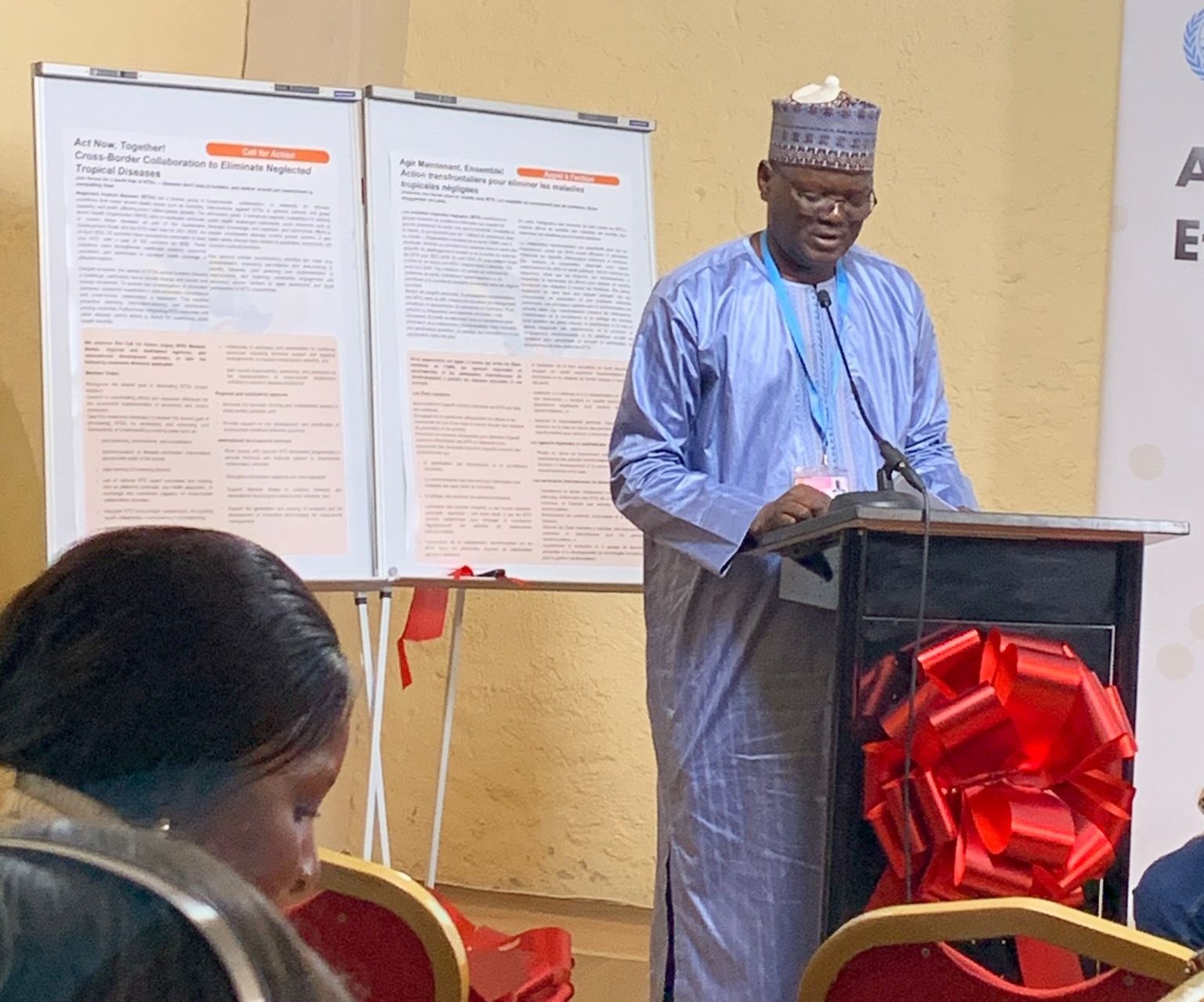
Hon. Dr Malachie Manaouda, Minister of Health of Cameroon, celebrated national progress in NTD elimination, including the fact that 12 million people no longer require treatment. He called for unified strategies, data sharing, and the use of innovative technologies to reach underserved communities.
The GONE meeting at WHA78 served as a powerful reminder that sustained elimination of NTDs will require integrated, country-driven efforts and committed cross-border partnerships across Africa.
